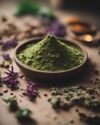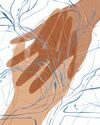DR NATWAR SHARMA is a member of the Royal College of Pediatrics and Child Health (MRCPCH), and has served and trained in the pediatric intensive care unit of Apollo Hospitals, Chennai, India. During the course of his work as a pediatric intensivist and a therapist of alternate healing, he faces the usual difficulties of coping with stress at work and the challenge of staying emotionally detached from his patients. Here he is interviewed by DR VIJI Balasubramanian about how he finds balance and rejuvenation amidst a hectic schedule.

Q As a therapist, how do you nurture and nourish yourself so that the work with your patients does not affect you in a negative way and at the same time actually helps them to heal?
There are three things my guide told me: first, to maintain absolute confidentiality when dealing with a patient or client, because unless I give that space to them they cannot open up to me. Second, not to judge anybody, because the moment I judge I’m finished. That judgment will not only destroy my ability to help but it will also affect my client energetically. I may not tell that person, but energetically it definitely has an effect. I have noticed that.
There is a wonderful quote from Autobiography of a Yogi: “The vanished lives of all men are dark with many shames.” There are no exceptions. So who am I to judge? Just because we are traveling in a boat, the fact that you are sitting in the front and somebody is behind does not mean that person is inferior. You are still in the boat. If you are born on this Earth as a human being, that means you are born with baggage. Your baggage may be smaller; his baggage may be bigger; her baggage may be darker; yours may be lighter. But baggage is baggage. For example, whether it is a golden prison or a steel prison, it is still a prison. So who am I to judge?
The third thing is not to resonate, because if I start resonating with somebody else’s problem I cannot finish my work. I must let go of it otherwise I can’t deal with a person of that nature. So these three things are quite important.
Q And how do you cultivate these?
This story is from the {{IssueName}} edition of {{MagazineName}}.
Start your 7-day Magzter GOLD free trial to access thousands of curated premium stories, and 9,000+ magazines and newspapers.
Already a subscriber ? Sign In
This story is from the {{IssueName}} edition of {{MagazineName}}.
Start your 7-day Magzter GOLD free trial to access thousands of curated premium stories, and 9,000+ magazines and newspapers.
Already a subscriber? Sign In

A Flower from THE HEAVENS
November 14 is Children's Day. This year, SARA BUBBER brings to you a world of forests, magical flowers, festivals, and some animals you may have never seen.

Meeting Phenomenal Women
The author, CHITRA BANERJEE DIVAKARUNI, is interviewed here by TARA KHANDELWAL and MICHELLE D'COSTA about her books on mythology, like The Palace of Illusions, which is a retelling of the Mahabharata from Draupadi's point of view, and The Forest of Enchantments, which is a retelling of the Ramayana, from the eyes of Sita. And there's The Last Queen, which is about Rani Jindan's life.

HERBAL TOOTH POWDERS: Rediscovering Ayurveda's Natural Secrets
SRAVAN BANDA presents a natural herbal tooth powder, offering a holistic approach to oral hygiene, harnessing the power of medicinal herbs.

The Dance of Light and Shadow Lessons from the Dolomites
ALAIN DESVIGNE explores the Dolomites, listed as a UNESCO World Heritage Site in 2009.

FINDING OUR WAY
A Polynesian Explorer's Journey of Discovery

The First Imprint: Understanding PTSD
CHRISTIANNA DEICHMANN is the Director of Education at the Association for Pre and Perinatal Psychology and Health (APPPAH), where she educates both professionals and parents on fostering the most nurturing environments for welcoming new life into the world.

The Tipping Point
In this final conversation of the series, J. FREDERICK ARMENT continues to talk with CHRISTINE JONES about promoting peace in the world.

UNLOCK YOUR POTENTIAL
Take The Brighter Minds Path To Cognitive Development

The Intrinsic Goodness of the Heart
DAAJI shares some thoughts on heartfelt acceptance and all it has to offer. He says, \"It is the heart's intrinsic goodness that allows us to accept everything as part of us.

How Does Fear Affect Our Roles as Mothers? - Neelam Shivhare explores some of the great ancient texts of India on motherhood, compares the behavior of Kaikayi and Yashoda
Neelam Shivhare explores some of the great ancient texts of India on motherhood, compares the behavior of Kaikayi and Yashoda, and realizes the importance of removing fear from our hearts in order to nurture our children.For young women like myself, who are future mothers, I trust we are on the path of becoming selfaware and brutally honest with ourselves. We are creative beings, never forgetting the gifts with which we have been bestowed— the love and tenderness, natural instincts, and intuition to feel the right path. It all lies in the mysterious meanderings of the heart. Are we really listening to our hearts, or confusing the bombarding information on social media with reality?